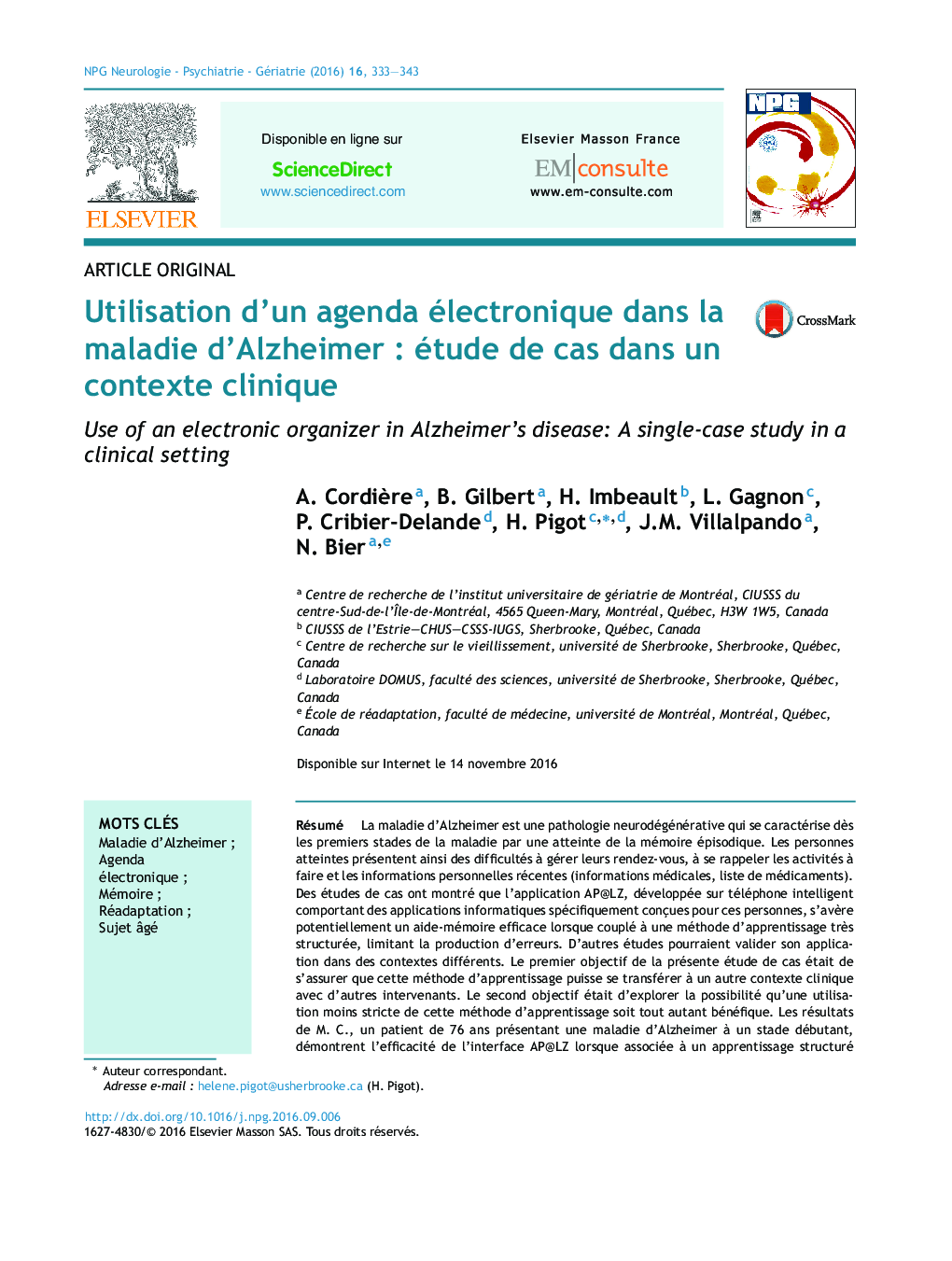| Article ID | Journal | Published Year | Pages | File Type |
|---|---|---|---|---|
| 5662855 | NPG Neurologie - Psychiatrie - Gériatrie | 2016 | 11 Pages |
Abstract
Alzheimer's disease, a neurodegenerative pathology, is characterized at the beginning by episodic memory deficit. This leads to difficulties in managing appointments, and remembering things to do or recent personal information. Some case studies have reported that the application AP@LZ, developed on smartphone and including specific applications designed specifically for people with Alzheimer's disease, presents good potential when introduced with a structured learning procedure. More studies are required to validate its use in different settings. The first objective of this study was to ensure the transferability of the learning method to another clinical context; the second was to explore whether a more flexible, less time-consuming method of acquisition could be equally beneficial. Our results concerning the introduction of the AP@LZ application to a patient with Alzheimer's disease in the first stages showed the effectiveness of the AP@LZ interface when accompanied by structured learning, and an absence of errors. These results also suggest that a less strict learning method, enabling a reduction in the time spent by the clinician, can be just as beneficial for the patient. Some issues, such as charging and needing to carry the smartphone everywhere, are discussed. In conclusion, this study shows the benefits for people with Alzheimer's disease of using mobile applications, and points to the importance of pursuing research on the effectiveness of memory aids in maintaining patients in their homes.
Keywords
Related Topics
Health Sciences
Medicine and Dentistry
Geriatrics and Gerontology
Authors
A. Cordière, B. Gilbert, H. Imbeault, L. Gagnon, P. Cribier-Delande, H. Pigot, J.M. Villalpando, N. Bier,
